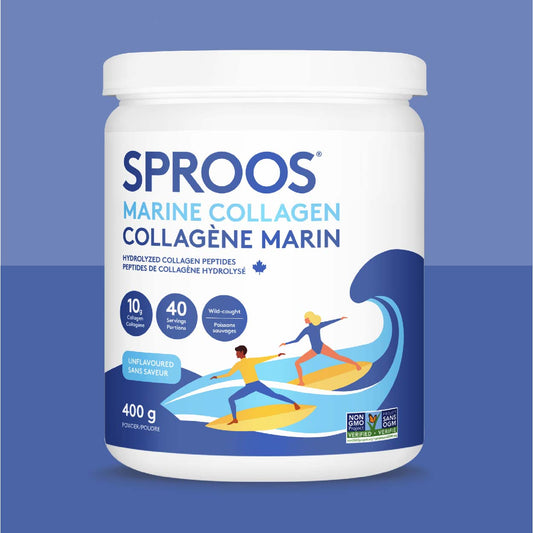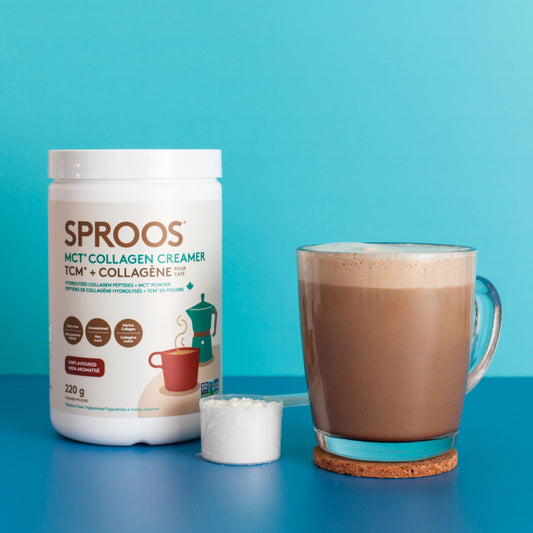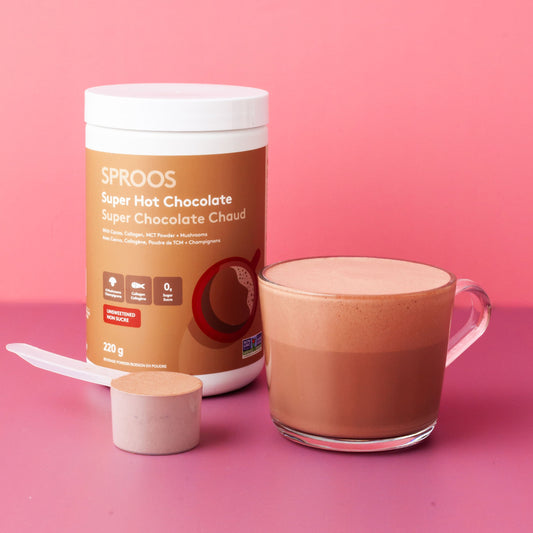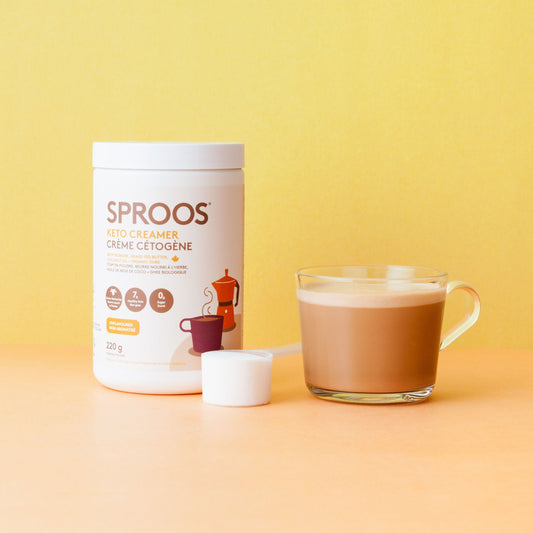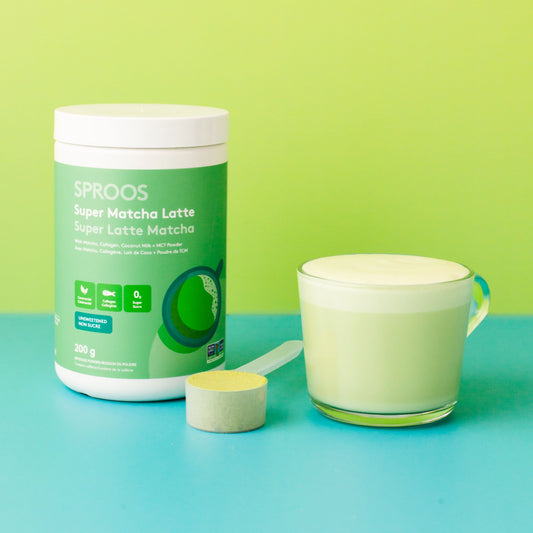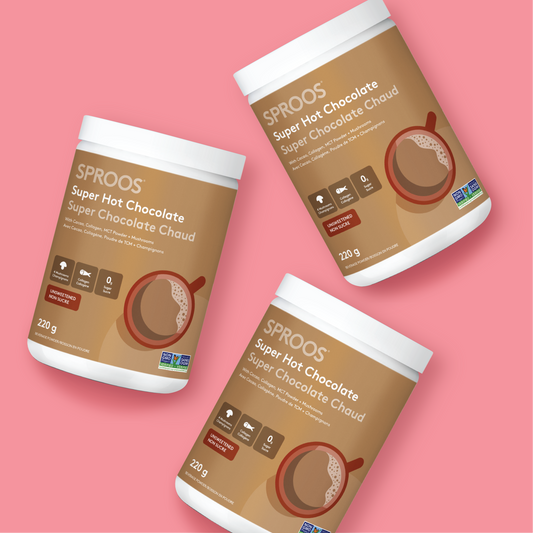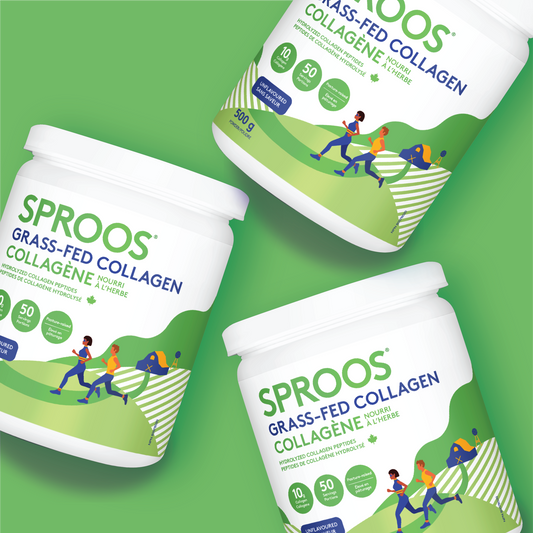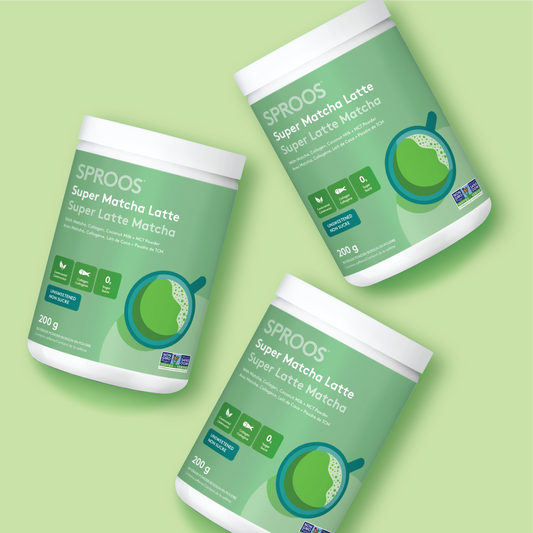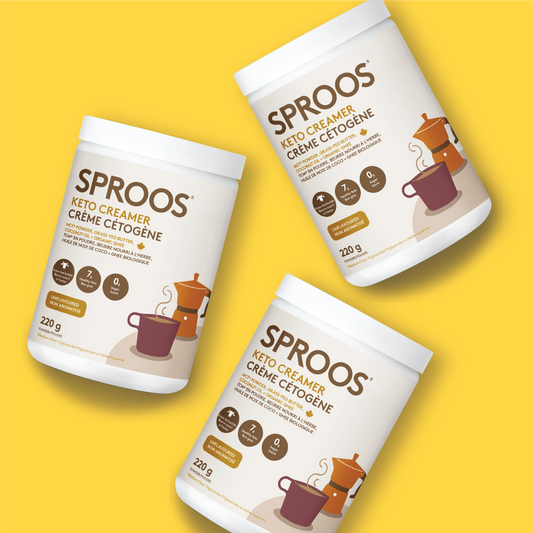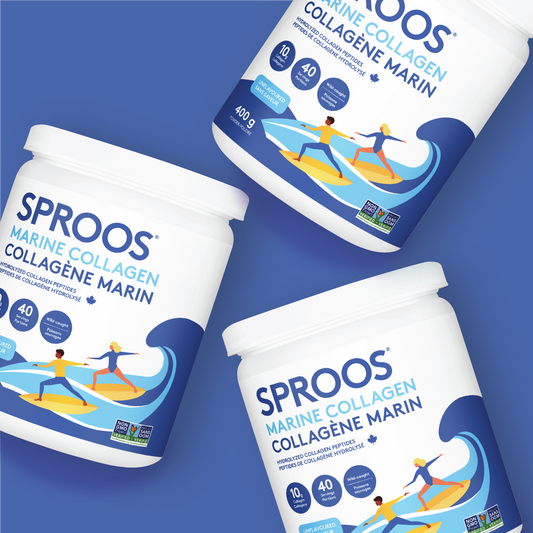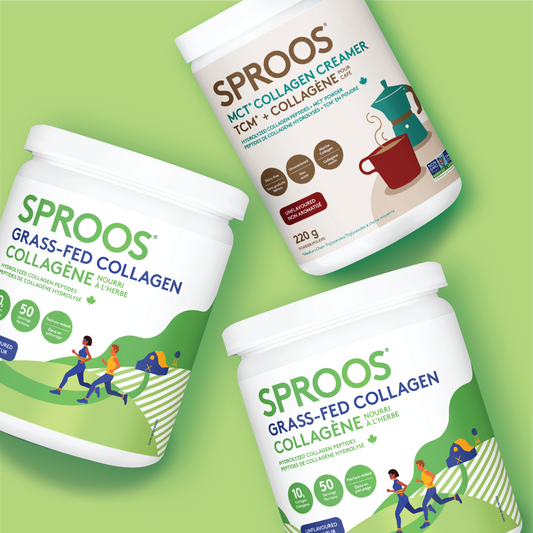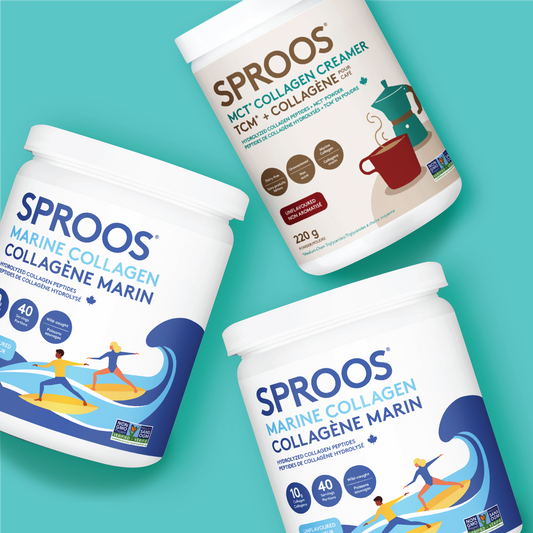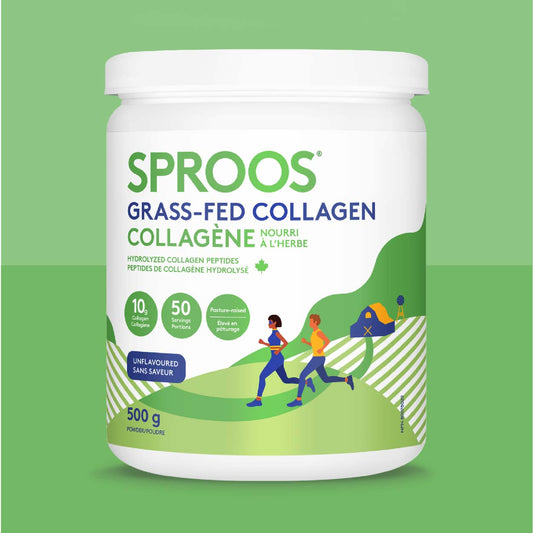Collagen plays a major role in bone health and forms the building blocks of your bones. Collagen is often considered the secret weapon to eternal youth. It's crucial for taut skin, glowing complexion, and strong nails. But, it's essential for far more than your appearance. Your entire body is held together by collagen.
Healthy bones are associated with a healthy life. Bones are primarily made of two things: collagen and calcium. Collagen is the most abundant protein in your body. It has a ton of important functions, including strengthening your bones. With all the information out there and different types of collagen supplements on the market, it can be challenging to know where to start. We've done the research, so you don't have. In this post, we take a look at how collagen supplements can benefit your bone health.
Why Is Collagen So Important for Bone Health?
There are many types of collagen in your body, but around
80-90% of it is made up of three types. Type I collagen is the most abundant protein in the body. It's responsible for keeping fine lines and sagging at bay, but perhaps the most important job, it strengthens your bones. Type II collagen is found in your cartilage, the connective tissue around your bones. Collagen and calcium are the two main substances in your bones and combine to create both strong and flexible bones. The collagen is the softer part of your bones which is encased by the harder calcium mineral. Although you may have grown up hearing how you need calcium for healthy bones, you actually need collagen too! Collagen not only supports strong bones, but it helps you to move them more freely. Our hinge joints like knees, elbows and hips allow us to move our bones fluidly. The role of your joints is to connect two or more bones. Without cartilage, ligaments and tendons, this would be painful. A
major component of all these connective tissues is collagen.
What Happens When Your Bones Don't Get Enough Collagen?
When you're young, your body has no problem producing lots of collagen. But, from the age of 20, it starts to decrease by 1% each year. This percentage
increases significantly over the age of 40.
A lack of collagen can play a role in:
- Osteoarthritis
- Osteoporosis
- Autoimmune joint conditions
Ageing is a natural process that decreases your collagen levels. Other contributing factors to reduced collagen levels are diet and lifestyle choices. This could include not eating enough
collagen-rich foods in your diet or excessive sugar consumption and smoking.
4 Benefits of Collagen: Building Stronger Bones
The list of
health benefits of collagen supplements is pretty long with skin, nails and hair often coming out on top. Collagen can support a wrinkle-free complexion, promote a healthy gut, and you guessed it, build strong bones.
1. Improve Bone Mineral Density
Bone mineral density (BMD) is a measure of bone density. It reflects the strength of bones and is often used to test for conditions like osteopenia and osteoarthritis. Osteopenia is when your bones are weaker than average but not so much that they will break easily. Osteoarthritis is a condition that causes your joints to become stiff and painful. As you age and your collagen levels drop naturally, so does your bone mass. Low BMD is associated with the development of osteoporosis and weak bones. This is
linked to a higher risk of bone fracture. Research shows that collagen supplements may improve bone mineral density. One study found that postmenopausal women who took a daily collagen supplement for 12 months experienced a
significant increase in bone mineral density. During menopause, the drop in bone density is often caused by a decrease in the female hormone, estrogen.
2. Collagen is the Building Block of Bones
Collagen is one of the primary building blocks of the bones, skin, muscles and ligaments. It's found almost everywhere in the body. It ensures the structure and strength of the skin, bones, and cartilage.
Collagen represents about 90% of total organic bone mass and is vital for the body's framework, bone strength and flexibility For bones to be strong and healthy, you need to maintain a healthy level of BMD. Evidence suggests that collagen peptides can boost calcium absorption, improve bone mineral density and
maintain bone strength.
3. Stimulate Cartilage Growth
Cartilage is the rubbery material that covers the ends of joints and bones. Both ageing and repeated movement can slowly cause the cartilage to wear off over time. This results in ligaments and tendons to stretch and bones to rub together, causing pain. By boosting your collagen intake, you can help support
healthy bones and protect cartilage. One study investigated the
effects of collagen supplements on 73 athletes. After 24 weeks, participants noticed a significant decrease in joint pain when resting and walking.
Another study found that adults who took a collagen supplement for 70 days felt a significant reduction in joint pain. Collagen supplements appear to be effective at managing osteoarthritis-associated symptoms.
4. Prevent Bone Loss
As your collagen levels decrease, it can impact your bone density. Research suggests that collagen may not only increase bone density but, prevent bone loss in the first place.
Research shows that collagen supplements may help to inhibit bone breakdown, which can lead to osteoporosis. Menopause can increase the risk of developing osteoporosis.
One study found that a calcium-collagen dietary supplement reduced bone loss in postmenopausal women. Again, this supports the use of collagen supplements to prevent bone loss and improve bone mineral density.
The Takeaway
Even though collagen naturally occurs in your body, you can take a few steps to ensure you reach optimal collagen levels. All our
Sproos' collagen products are ethically sourced, high quality and filler-free. Whether you're looking to up your collagen intake for bone health or its skin-boosting benefits, you can easily incorporate collagen into your daily routine. Add a scoop to your favourite drink, grab a snack bar on the go or try one of our
autumn collagen elixir recipes.


